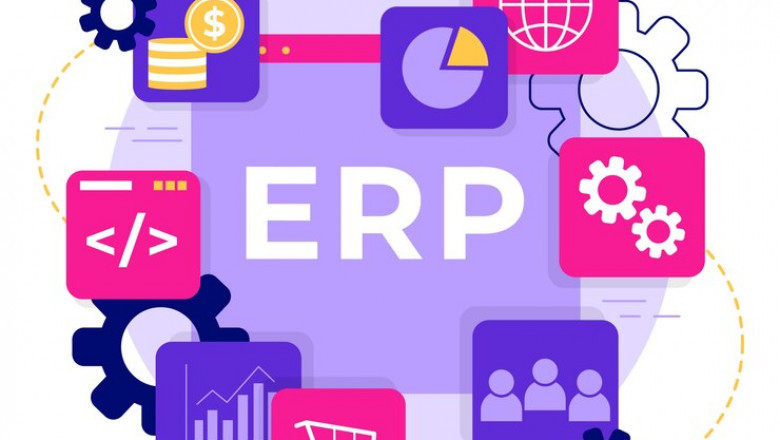views
Introduction
In today's fast-paced business environment, organizations are constantly seeking ways to streamline operations, enhance efficiency, and gain a competitive edge. One of the most effective tools to achieve these goals is the implementation of an Enterprise Resource Planning (ERP) system. Particularly in the United Arab Emirates (UAE), where businesses are rapidly evolving, ERP systems have become indispensable.
This comprehensive guide delves into the essence of ERP systems, their significance in the UAE, and provides real-world examples to illustrate their impact.
What is an ERP System?
An ERP system is a suite of integrated applications that manage core business processes in real-time. These processes include finance, human resources, supply chain, customer relationship management, and more. By consolidating data across departments, ERP systems facilitate seamless information flow, enabling informed decision-making and operational efficiency.
Key Features of ERP Systems
-
Integration: Unifies various business processes into a single system.
-
Automation: Streamlines repetitive tasks, reducing manual effort.
-
Data Analysis: Provides real-time insights for strategic planning.
-
Scalability: Adapts to the growing needs of a business.
-
Compliance: Ensures adherence to regulatory standards.
ERP System in UAE
The UAE's dynamic economy, characterized by rapid growth and diversification, necessitates robust business solutions. ERP systems have emerged as vital tools for organizations aiming to optimize operations and maintain competitiveness.
Adoption Across Industries
-
Construction: Companies like FirstBit offer ERP solutions tailored for the construction industry, managing project costs and timelines effectively.
-
Retail: ERP systems help retailers manage inventory, sales, and customer data, enhancing the shopping experience.
-
Manufacturing: Streamlines production processes, inventory management, and supply chain logistics.
-
Healthcare: Facilitates patient data management, billing, and compliance with health regulations.
Benefits for UAE Businesses
-
Localization: ERP solutions in the UAE are customized to comply with local laws and business practices.
-
Multilingual Support: Accommodates the diverse workforce by supporting multiple languages.
-
Real-Time Reporting: Enables businesses to make data-driven decisions promptly.
-
Cloud Integration: Offers flexibility and scalability through cloud-based solutions.
ERP System Examples
Understanding the practical applications of ERP systems can provide valuable insights. Here are some notable examples:
1. SAP S/4HANA
A comprehensive ERP suite that offers real-time analytics and streamlined processes. It's widely used in various industries for its scalability and robust features.
2. Oracle ERP Cloud
Provides a complete, innovative, and proven solution for organizations of all sizes. It offers advanced capabilities in finance, project management, procurement, and more.
3. Microsoft Dynamics 365
Combines ERP and Customer Relationship Management (CRM) capabilities, offering tools for sales, customer service, field service, and operations.
4. Odoo
An open-source ERP system that offers a range of business applications, including CRM, e-commerce, billing, accounting, manufacturing, and project management.
5. NetSuite
A cloud-based ERP solution that provides a suite of applications to manage business operations and customer relations.
Conclusion
ERP systems have become integral to modern business operations, especially in the UAE's rapidly evolving market. By integrating various functions into a unified system, ERP solutions enhance efficiency, ensure compliance, and provide real-time insights for strategic decision-making. As businesses continue to grow and diversify, adopting a suitable ERP system will be crucial for sustained success.
FAQs
Q1: What is the primary purpose of an ERP system?
A1: An ERP system aims to integrate various business processes into a unified system, enhancing efficiency and providing real-time data for informed decision-making.
Q2: Why are ERP systems important for businesses in the UAE?
A2: ERP systems help UAE businesses comply with local regulations, manage diverse operations, and stay competitive in a rapidly growing economy.
Q3: Can small businesses benefit from ERP systems?
A3: Yes, ERP systems are scalable and can be tailored to meet the needs of small businesses, improving their operational efficiency.
Q4: How do ERP systems enhance data security?
A4: ERP systems centralize data management, implement access controls, and ensure compliance with data protection regulations, thereby enhancing security.
Q5: What factors should be considered when choosing an ERP system?
A5: Businesses should consider scalability, industry-specific features, compliance requirements, user-friendliness, and total cost of ownership when selecting an ERP system.














Comments
0 comment